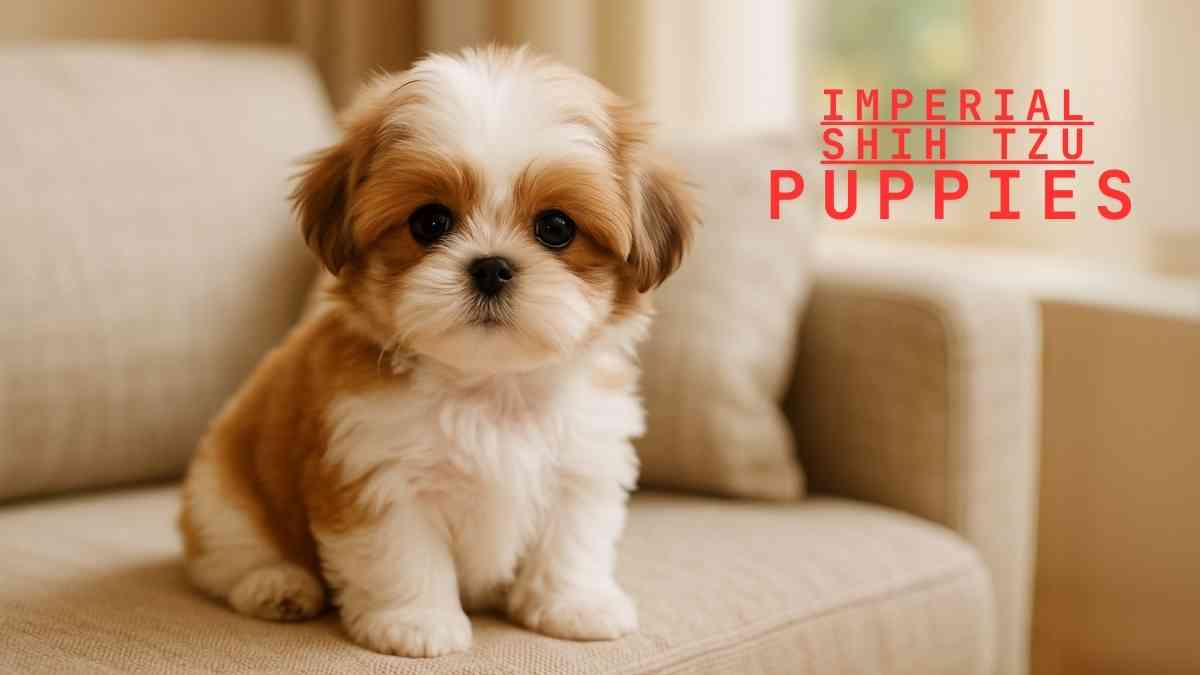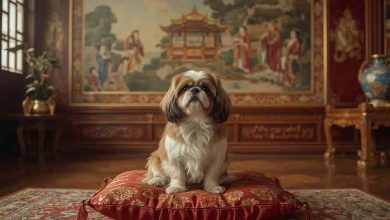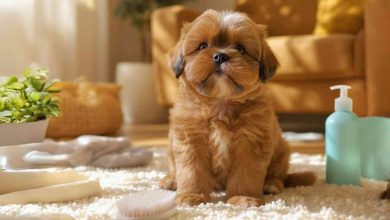Imperial Shih Tzu Puppies: What Makes Them So Special?

Imperial Shih Tzu puppies have a way of capturing hearts almost instantly. With their tiny size, round expressive eyes, and affectionate nature, it’s no wonder they’ve become a favorite among dog lovers. But behind their irresistible charm lies a breed variation that needs to be properly understood. If you’re considering welcoming an Imperial Shih Tzu into your home, it’s important to know what makes them unique, their needs, and the responsibilities that come with raising one.
In this guide, we’ll explore what an Imperial Shih Tzu puppy truly is, why they are different from standard Shih Tzus, and what to expect when caring for these delicate companions.
What Are Imperial Shih Tzu Puppies?
The term “Imperial Shih Tzu” refers to Shih Tzu puppies that are intentionally bred to be smaller than the breed standard. Officially, organizations like the American Kennel Club (AKC) recognize only one size for Shih Tzus. However, some breeders use the term “Imperial” to describe exceptionally small Shih Tzus, often weighing under 9 pounds when fully grown.
It’s important to note that “Imperial” is not a separate breed but rather a size variation within the Shih Tzu breed. The smaller size results from selecting the tiniest individuals—sometimes the runts of the litter—for breeding.
The Origin of Imperial Shih Tzus
Historically, Shih Tzus originated from China and were bred to be royal lap dogs, cherished by emperors and nobility. The desire for even smaller lap companions gave rise to breeders selectively producing smaller Shih Tzus. Over time, the term “Imperial” became popular in marketing to highlight their petite stature and exclusivity.
However, reputable breed organizations continue to classify all Shih Tzus under one standard without official recognition of “Imperial” as a distinct category.
How They Differ From Standard Shih Tzus
Size and weight are the most noticeable differences. While a standard Shih Tzu usually weighs between 9 to 16 pounds and stands 8 to 11 inches tall, Imperial Shih Tzus often weigh less than 9 pounds and are notably shorter.
Physically, they retain the classic Shih Tzu appearance: a round face, short snout, luxurious coat, and proud posture. Their smaller frame, however, can make them appear even more delicate and doll-like, which adds to their appeal.
Benefits of Owning an Imperial Shih Tzu
One of the main reasons people are drawn to Imperial Shih Tzu puppies is their manageable size. These tiny dogs are ideal for apartment living and are easy to carry around. They require less food, smaller living spaces, and are generally easier to groom and handle due to their compact size.
Their affectionate and loyal temperament makes them excellent companions for seniors, singles, and families alike. Their loving nature means they often bond deeply with their owners, thriving on companionship and attention.
Personality and Temperament
Imperial Shih Tzus are known for their sweet and gentle personalities. They are loving, loyal, and enjoy being part of the family. Despite their small size, they are often brave, playful, and curious about their surroundings.
They make excellent lap dogs and enjoy snuggling just as much as they enjoy short play sessions. Their temperament makes them suitable for families with older children who understand the need to be gentle with smaller pets.
Health Considerations
While Imperial Shih Tzus are adorable, their tiny size comes with health considerations that future owners must understand. Selective breeding for smaller size can lead to structural issues, such as bone fragility, joint problems, and dental overcrowding.
Additionally, they share the common Shih Tzu trait of being a brachycephalic breed, meaning they have short noses and flat faces. This can result in respiratory problems, especially in hot or humid weather. Careful monitoring during exercise and outdoor activities is essential.
Caring for an Imperial Shih Tzu
Proper care is crucial to ensuring your Imperial Shih Tzu leads a healthy and happy life. Their long, luxurious coat requires regular grooming to prevent matting and tangling. Brushing them several times a week and scheduling professional grooming sessions every few months is highly recommended.
In terms of diet, high-quality food formulated for small breeds is essential to meet their nutritional needs without risking obesity. Portion control is important since their tiny bodies cannot handle excessive weight.
They do not require intense exercise but do enjoy short daily walks and indoor playtime. Keeping them mentally stimulated with toys and positive interaction prevents boredom and behavioral issues.
Ethical Breeding and Important Warnings
Not all breeders prioritize the health of Imperial Shih Tzus. Some may focus solely on producing smaller puppies without proper health screening, which can result in serious medical issues later in life.
It is essential to choose breeders who are transparent, conduct health testing, and genuinely care for the well-being of their dogs. Responsible breeders will be honest about the potential health risks and will provide veterinary records, health guarantees, and parent dog information.
Training and Socialization
Imperial Shih Tzus are intelligent but can sometimes show a stubborn streak. Consistent, positive reinforcement training is effective. Socializing them from a young age ensures they grow up to be confident and well-mannered around people and other pets.
Patience and gentle handling are key, as their delicate frames make rough handling dangerous.
Potential Challenges
While their small size is a major advantage for many, it also comes with potential challenges. Imperial Shih Tzus can be prone to injury if accidentally dropped or stepped on. Families with very young children must supervise all interactions carefully.
Their grooming needs can also be time-consuming for owners not prepared for regular maintenance. Additionally, because of their strong bond with owners, they can experience separation anxiety if left alone for long periods.
Is an Imperial Shih Tzu Right for You?
Before adopting, consider your lifestyle. If you live in a small space, enjoy affectionate companions, and are prepared for the grooming and healthcare responsibilities, an Imperial Shih Tzu might be a perfect match.
However, if you’re looking for a dog that can handle rough play, heavy exercise, or being left alone for long periods, another breed may be a better fit.
Quick Facts About Imperial Shih Tzu Puppies
| Feature | Detail |
|---|---|
| Average Weight | Less than 9 pounds |
| Height | Under 8 inches |
| Life Span | 10 to 16 years |
| Grooming Needs | High; daily or frequent brushing required |
| Temperament | Affectionate, loyal, playful |
| Exercise Needs | Low to moderate |
| Health Risks | Respiratory, dental, joint issues |
| Ideal For | Small homes, seniors, singles, gentle families |
Conclusion
Imperial Shih Tzu puppies are undeniably special — not just for their size, but for the joy and companionship they bring into their owners’ lives. Their loving nature, coupled with their adorable appearance, makes them a treasured addition to the right household.
However, owning an Imperial Shih Tzu comes with a deep responsibility: ensuring their health, happiness, and well-being through informed care and ethical adoption. If you’re ready to dedicate your heart to a tiny but mighty companion, an Imperial Shih Tzu will return that love a hundredfold.
Ready to welcome endless love? Meet your Imperial Shih Tzu today!




